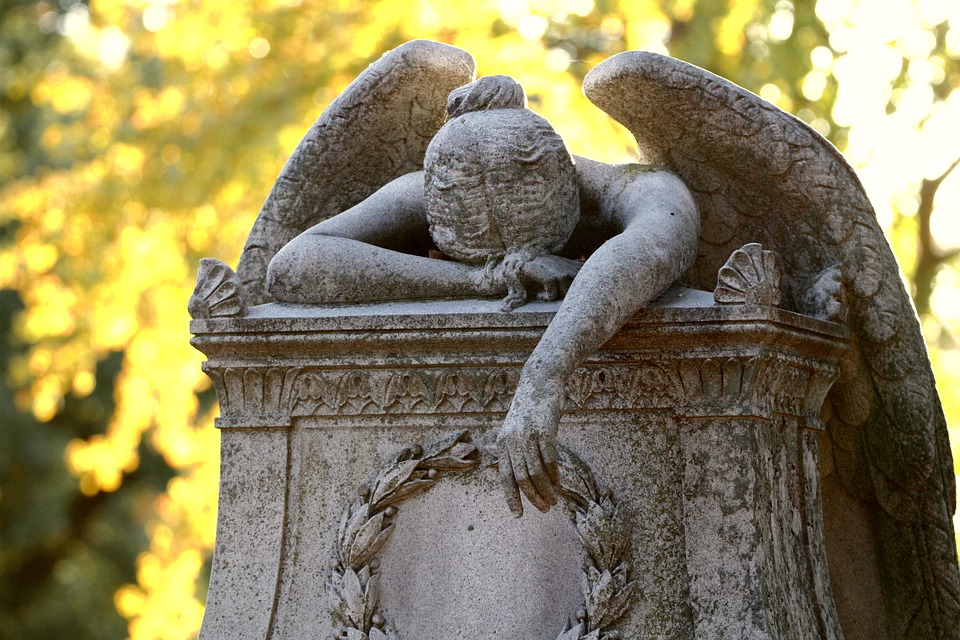


The 15th chapter of Luke contains a trilogy of parables settling around the theme of loss, and the joy that comes when one recovers what was lost: a lost sheep, a lost coin, and a lost son…or perhaps, two lost sons.
For me, and for many of you, Mother’s Day represents a season of loss. My mother died when I was seventeen, the week right after Mother’s Day. As I get older, I think about how my mother’s death impacted the rest of my family, and not just me. As I get wiser, I think more about how my father and my brother deal with her absence. And it makes me look at “The Parable of the Prodigal Son” with fresh eyes: Not only is the mother’s absence glaring, but maybe the questionable behavior of both of these sons is in response to not knowing how to deal with her absence.
At first glance, this parable appears to be a story about the relationship between a father and his sons. But I would like to offer that it is also about two other familial ties: the absence of a mother, and a strained relationship between two brothers. Maybe this should be titled, “the prodigal family.” The word ‘prodigal’ is one of those rarely-see-it-used-outside-of-the-Bible words, and it means ‘wasteful.’ I would like to focus first on the prodigal who stayed at home, the older brother. Notice please, that this parable does not have a Disney ending. I can’t help but wonder why Jesus didn’t just end this at verse 24: “my son who was dead is now alive; was lost, now he is found. Let’s celebrate.” Music swells, the end, roll credits.
But it doesn’t end there, does it?
Now his elder brother was in the field, and when he came and approached the house he heard music and dancing and he called to one of the servants (If they had servants, they had money) and he asked what was going on. The servant replied, your brother has come, and your father has killed the fatted calf (ancient Jews were not believed to eat meat at every meal, so to kill the fatted calf meant this was a special celebration.)
What is the older brother’s problem?
It occurs to me that older brother…let’s call him Tyrone…may be the reason the younger brother left home in the first place. Tyrone sounds quite angry, doesn’t he?
Now if you pay close attention to verse 12, you will note that it wasn’t just the younger brother who got his share of the father’s estate: “he (the father) divided his property between them.” Deuteronomy 21:17 suggests the older brother would receive two-thirds of his father’s estate, yet no where in the text do we see an ounce of gratitude. We don’t read that he said thank you and we don’t read that he passed on it either. No thanks Dad, you keep your money. Tyrone has a heart condition. Ungrateful behind. Something is wrong with his ability to love. Tyrone, would not even go into the house when his little brother came home. He wasn’t even curious to see his little brother! The younger brother, let’s call him Todd, trusted in his own wisdom, and wanted to be free. Like a lot of young people, Todd wanted to be loosed from all restraint. He was deep into self-will, left home, determined to make it on his own…with his father’s money. Nevertheless, the father accedes to his son’s wishes, thereby granting him the freedom to choose his own destiny and live with the implications of his decision. Todd fell on hard times, and a Jew was feeding pigs. Then God sent him to obedience school, he spoke the truth about himself, and a conversion took place. He came home, his father fell on his neck, and his brother, Tyrone, wasn’t even curious to see how raggedy he looked, or if he had grown a beard, or grown taller, or had gained weight, or lost weight, didn’t want to know diddly about his own brother. Notice please that Tyrone never asks about Todd’s welfare. Not once. He wasn’t glad to know his brother was home and all right. This is his brother. Yet, he refused to go into the house. Unforgiveness thinks it is so good, it doesn’t need mercy: “He wasted your living with prostitutes.” So what if he suffered in the far country. I don’t care. Where is Tyrone’s fraternal love for Todd? So much of this can easily speak to the current political landscape; we’re in a season where people find fault like there was a reward for it. Let that sit a bit, because a lot of churchy culture is deeply invested in faultfinding. Back to the prodigal family.
Tyrone tells his father “hey, all these years I have served you.” Served, not loved.
Maybe if Tyrone had learned to enjoy life a bit more, he wouldn’t be so bitter about his little brother getting a taste of freedom.
And Jesus left this parable open-ended, with no previews of next week’s episode. How did this story really end? Did the brothers ever reconcile? Did they make amends? And where the heck was their mother? Did she die? Did she leave? How much of the contention between these two brothers had to do with their mother being absent, of these brothers not having that thing that mothers give you?
I think Jesus left it open ended so we could see ourselves in it, like a mirror to the soul. This parable makes you check “how you livin?’” Maybe Jesus wants us to investigate and interrogate our own senses of loss and struggle. And this brings us right back to Tyrone. He was completely unable to see through his father’s or brother’s eyes; he was just as absent as the mother in this parable. Consider that Jesus is reminding us to always be as present as we can be, because absence is inevitable.